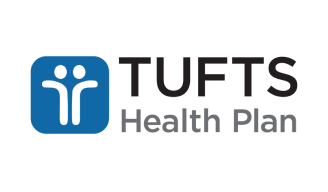Buda, Texas, United States
Ava Recovery
Verified
Verified
This provider’s information has been quality-checked by Recovery.com’s Research Team for accuracy and completeness, including center verification through appropriate third-party organizations.
Joint Commission Accredited
The Joint Commission accreditation is a voluntary, objective process that evaluates and accredits healthcare organizations (like treatment centers) based on performance standards designed to improve quality and safety for patients. To be accredited means the treatment center has been found to meet the Commission's standards for quality and safety in patient care.
Provider's Policy
We offer free consultations to anyone who reaches out for help. Did you know most major insurance carriers will cover the costs associated with treatment? Contact our trusted treatment team today to discuss your personal options for treatment.
Estimated Cash Pay Rate
The cost listed here ($40,000-$45,000) is an estimate of the cash pay price. Center pricing can vary based on program and length of stay. Contact the center for more information. Recovery.com strives for price transparency so you can make an informed decision.
About Ava Recovery
Ava Recovery’s boutique campus in Buda, Texas provides an individualized treatment approach, offering medical detox and residential care. Ava Recovery integrates 12-Step or non-12 Step care, evidence-based therapies, holistic activities, and medication-assisted treatment (MAT) into each treatment plan. Their residential treatment typically lasts 30 days, but can extend to 90 if needed.
Multiple Treatment Pathways for Comprehensive Healing
Ava Recovery’s therapeutic approaches address both substance use and mental health conditions like depression, trauma, and anxiety. Clients can enjoy holistic and evidence-based therapies in a 1:1, group, or family setting. Ava Recovery offers art therapy, guided meditation, and sound therapy. They also use evidence-based therapies like cognitive-behavioral therapy (CBT), dialectical behavioral therapy (DBT), eye movement therapy (EMDR), equine therapy, inner-child therapy, and internal family systems (IFS) therapy.
Treating The Root Cause of Addiction
Ava Recovery uses a trauma-informed treatment approach, striving to understand the “why” behind addiction. Their dual-diagnosis focus treats mental health conditions too, helping clients heal from the root cause of addiction and its symptoms. Ava Recovery provides MAT during treatment. Their approach begins with MAT, where a 24/7 team of nurses supervise detox. After detox, clients begin residential treatment.
Boutique-Style Campus
At Ava Recovery’s welcoming campus, clients can enjoy yoga sessions and physical therapy. Their campus has semi-private rooms, ensuite bathrooms, gourmet meals, and an outdoor pool. Their 15-bed facility has a 1:1 staff-to-patient ratio, helping treatment stay personal and custom throughout their stay. Ava Recovery accepts both public and private insurances.
Read More

Insurance Accepted
Provider's Policy:We offer free consultations to anyone who reaches out for help. Did you know most major insurance carriers will cover the costs associated with treatment? Contact our trusted treatment team today to discuss your personal options for treatment.
Luxury rehab centers offer a unique blend of luxurious amenities and high-quality treatment. From private suites to gourmet dining, personal trainers to spa treatments, these facilities provide a high level of comfort and discretion.

Personalized And Comprehensive
Ava Recovery customizes treatment to the unique needs of each client. They also offer a comprehensive range of care, with detox and residential rehab programs. Ava Recovery’s evidence-based, holistic, and experiential therapies address the mind, body, and spirit for a comprehensive treatment experience—and a thorough sense of healing.
Trauma-Informed, Dual-Diagnosis Care
Ava Recovery treats mental health conditions like anxiety, depression, and post-traumatic stress disorder (PTSD). They understand that more than one condition can occur at the same time, making the process of healing challenging. Their clinicians and licensed therapists can help clients navigate these challenges using a variety of methods, including trauma-informed, holistic, and other evidence-based approaches to customize care.
Experiential Healing
The experiential therapies at Ava Recovery provide a hands-on approach to recovery. Their therapies include art and music therapy, yoga, and sound therapy. Clients can interact with Ava Recovery’s on-site horses, Bo and Charlie. Ava Recovery also has a pool for added fitness and relaxation opportunities.
Individual And Family Healing
Ava Recovery provides integrated family treatment for clients and their families, helping them heal as a unified whole. They also provide relationship and marriage therapy for couples. Clients can heal their inner selves through internal family systems (IFS) therapy, inner-child therapy, and other person-centered approaches.

Center Overview
Estimated Cash Pay Rate
LGBTQ+
Addiction and mental illnesses in the LGBTQ+ community must be treated with an affirming, safe, and relevant approach, which many centers provide.
Men and Women
Men and women attend treatment for addiction in a co-ed setting, going to therapy groups together to share experiences, struggles, and successes.

Treatment Focus
This center treats primary substance use disorders and co-occurring mental health conditions. Your treatment plan addresses each condition at once with personalized, compassionate care for comprehensive healing.

Care Options






Treatment
Specializations
Alcohol
Using alcohol as a coping mechanism, or drinking excessively throughout the week, signals an alcohol use disorder.
Co-Occurring Disorders
A person with multiple mental health diagnoses, such as addiction and depression, has co-occurring disorders also called dual diagnosis.
Cocaine
Cocaine is a stimulant with euphoric effects. Agitation, muscle ticks, psychosis, and heart issues are common symptoms of cocaine abuse.
Drug Addiction
Drug addiction is the excessive and repetitive use of substances, despite harmful consequences to a person's life, health, and relationships.
Methamphetamine
Methamphetamine, or meth, increases energy, agitation, and paranoia. Long-term use can result in severe physical and mental health issues.
Non 12 Step
Non-12-Step philosophies veer from the spiritual focus of the 12-Steps and instead treat the disease of addiction with holistic or secular modalities.
Opioids
Opioids produce pain-relief and euphoria, which can lead to addiction. This class of drugs includes prescribed medication and the illegal drug heroin.
Twelve Step
Incorporating spirituality, community, and responsibility, 12-Step philosophies prioritize the guidance of a Higher Power and a continuation of 12-Step practices.
Approaches
Evidence-Based
A combination of scientifically rooted therapies and treatments make up evidence-based care, defined by their measured and proven results.
Holistic
A non-medicinal, wellness-focused approach that aims to align the mind, body, and spirit for deep and lasting healing.
Individual Treatment
Individual care meets the needs of each patient, using personalized treatment to provide them the most relevant care and greatest chance of success.
Twelve Step
Incorporating spirituality, community, and responsibility, 12-Step philosophies prioritize the guidance of a Higher Power and a continuation of 12-Step practices.
Therapies
1-on-1 Counseling
Patient and therapist meet 1-on-1 to work through difficult emotions and behavioral challenges in a personal, private setting.
Meditation & Mindfulness
A practiced state of mind that brings patients to the present. It allows them to become fully aware of themselves, their feelings, and the present moment.
Trauma-Specific Therapy
This form of talk therapy addresses any childhood trauma at the root of a patient's current diagnosis.
Mindfulness Therapy
This ancient practice can be mental, emotional, and even spiritual. In meditation, you focus your attention on the present moment without judgement.
Art Therapy
Visual art invites patients to examine the emotions within their work, focusing on the process of creativity and its gentle therapeutic power.
Couples Counseling
Partners work to improve their communication patterns, using advice from their therapist to better their relationship and make healthy changes.
Equine Therapy
Guided interactions with trained horses, their handler, and a therapist can help patients improve their self-esteem, trust, empathy, and social skills.
Experiential Therapy
With this approach, patients heal by doing. Therapists help patients process difficult emotions to speak, using guided activities like art or dance.
Conditions We Treat
ADHD, ADD
ADHD is a common mental health condition caused by dopamine imbalance. Common symptoms include inattention, hyperactivitiy, and impulsivity.
Post Traumatic Stress Disorder
PTSD is a long-term mental health issue caused by a disturbing event or events. Symptoms include anxiety, dissociation, flashbacks, and intrusive thoughts.
Trauma
Some traumatic events are so disturbing that they cause long-term mental health problems. Those ongoing issues can also be referred to as "trauma."
Substances We Treat
Alcohol
Using alcohol as a coping mechanism, or drinking excessively throughout the week, signals an alcohol use disorder.
Benzodiazepines
Benzodiazepines are prescribed to treat anxiety and sleep issues. They are highly habit forming, and their abuse can cause mood changes and poor judgement.
Chronic Relapse
Consistent relapse occurs repeatedly, after partial recovery from addiction. This condition requires long-term treatment.
Co-Occurring Disorders
A person with multiple mental health diagnoses, such as addiction and depression, has co-occurring disorders also called dual diagnosis.
Cocaine
Cocaine is a stimulant with euphoric effects. Agitation, muscle ticks, psychosis, and heart issues are common symptoms of cocaine abuse.
Drug Addiction
Drug addiction is the excessive and repetitive use of substances, despite harmful consequences to a person's life, health, and relationships.
Heroin
Heroin is a highly addictive and illegal opioid. It can cause insomnia, collapsed veins, heart issues, and additional mental health issues.
Methamphetamine
Methamphetamine, or meth, increases energy, agitation, and paranoia. Long-term use can result in severe physical and mental health issues.
Opioids
Opioids produce pain-relief and euphoria, which can lead to addiction. This class of drugs includes prescribed medication and the illegal drug heroin.
Prescription Drugs
It's possible to abuse any drug, even prescribed ones. If you crave a medication, or regularly take it more than directed, you may have an addiction.
Aftercare
Experience
Personal Amenities
Amenities
Activities
Yoga
Yoga is both a physical and spiritual practice. It includes a flow of movement, breathing techniques, and meditation.
Professional Staff

Casey Hagan
Chief Executive Officer

Leila Anderson
Executive Clinical Director
LMFT-S, LCDC

Adriana Loya
Primary Therapist
LPC-A, LCDC

Katerina Base
Director of Community Engagement
LCDC-Intern
View More Team Members
Accommodations
Food & Nutrition
Treatment
Value
Pros
- Beautiful Location (5)
- Luxurious Accommodations (4)
- Excellent & Effective Treatment Programming (3)
- Personalized (3)
S.D.
Randy L
E.B.
Erika Treuel
GCC
We love hearing about your treatment experience
Help individuals and families seeking treatment by sharing your first-hand experience with this treatment provider. Review Guidelines.



































